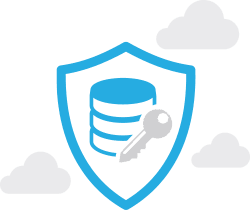Data security and encryption, private cloud solutions for all our iinsight® clients worldwide
Our commitment to your security
Be Software International is committed to providing the best of breed infrastructure, software and support services for our customers worldwide. As part of this commitment we maintain our ISO27001:2022 and ISO9001:2015 accreditations.
Data security and encryption
Be Software International provides private cloud solutions for all our iinsight® clients worldwide. Customers are provided with individual databases and document repositories.
Data is encrypted @ Rest for all databases and document repositories, whilst all communication via the internet is encrypted using encryption protocol TLS1.2 which is the highest standard available to commercial organisations. This provides security at rest along with bidirectional encryption of all communications between our clients and the private clouds and guarantee that the contents of communications between the user and iinsight® cannot be read or intercepted by any third party.

Monitoring and testing
We utilise real-time infrastructure monitoring and alerting to ensure system availability and data integrity. The monitoring is managed 24 hours a day 365 days per year.
On a monthly bases we test the implemented controls by running external vulnerability assessment tools and on a twice yearly basis arrange for external parties to run penetration audits. These audits allow us to continually improve our security controls and processes.

Local data centres and backups
Client data is held locally within the client’s geography. We do this by partnering with AWS and utilising data centres worldwide and connecting our clients to their local iinsight® platform.
Our data centres utilise the best of breed technologies, combining robust and dedicated architecture inclusive of disaster recovery and backup facilities.
All organisations databases are backed up every 5 minutes and a history of these backups are stored for a 35 day period.
All organisations document repositories (documents, reports, uploads etc) are backed up every hour and a history of these backups is stored for a 120 day period.






